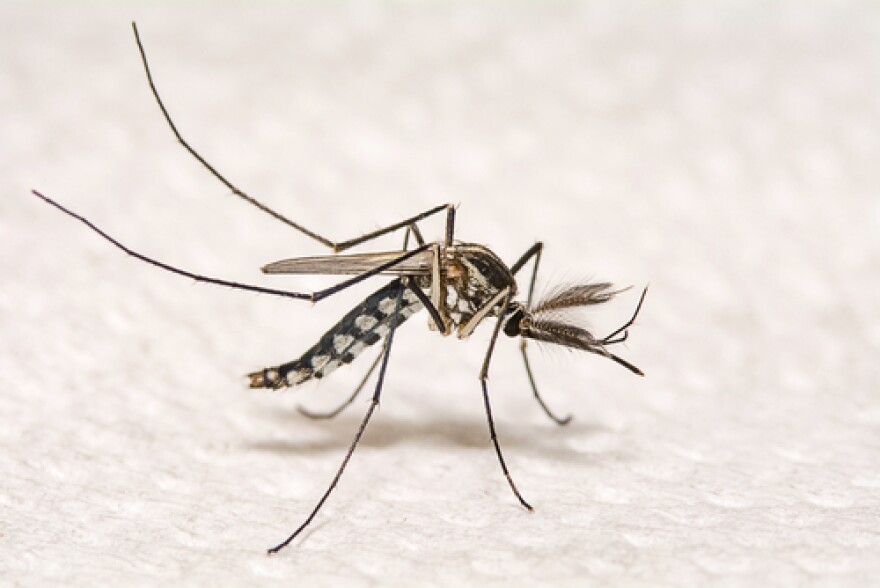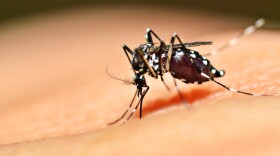There are dozens of types of mosquitoes in North Texas -- more than 50, in fact. A mosquito hunter who works with the city of Denton helps explain the differences between the bugs.
Meet the mosquito hunter
James Kennedy is a biology professor at UNT.
Mosquitoes are among the world's most dangerous animals. Each year, mosquito bites result in the deaths of more than 1 million people across the world. Some mosquitoes carry diseases like malaria, West Nile, and the Zika virus. Others are harmless.
Still, Kennedy doesn’t hate them.
“I have an inordinate fondness for mosquitoes,” he says. “That doesn’t mean I love mosquitoes, but I respect them. And I look at the role they played in world history, and that they continue to play in world history and I just find them fascinating from that standpoint.”
Not all mosquitoes are the same
Let’s get one thing straight – not all mosquitoes are the same. There are more than 50 types in North Texas alone, each with their own color, shape and personality. Some are active at night, others during the day. Some are brown, others a golden-hue. Some prefer to feed on humans — others feed on animals.
To better control the mosquitoes around us, Kennedy says we need to know what kinds live here.
To get a closer look at the mosquito species that’s most recently been in the news — Aedes Aegypti — we pull out the microscope in a nearby lab.
Aedes Aegypti, the mosquito that carries the Zika virus, has a black and white body, with stripes on its legs.

“When this is alive, it’s a striking mosquito,” Kennedy says. It almost looks like a zebra, with feathery antennae that serve as receptors to help it hone in on its prey.
Only female mosquitoes bite; Kennedy explains they need a “blood meal” so they can lay eggs. And those clusters of eggs need water to hatch. Kennedy says it pays off to do a little cleanup around your house to prevent adult mosquitoes from bothering you.
“You’re not just looking for a pool of water, or a bucket of water, you’re looking for those micro-habitats,” Kennedy says. “It might be a soft drink can … or your kids leave their toys out, you have your sprinkler system on and it just takes that fraction of an inch of water.”
So, why not just try and exterminate them all? Graduate student Beth Hambrick says it’s easy to hate on mosquitoes, but they’re important in the ecosystem.
“They bring so much biomass and so much energy to different bats and birds and all these different creatures that actually prey on mosquitoes,” she says.
Mosquitoes have been on Earth for more than 200 million years. Some people thought we’d get rid of them with pesticides like DDT, but instead, certain species built up resistance — making it harder to kill them later on. The lesson, Kennedy says, is that we need to better understand the bugs to control them — and that starts by acknowledging there’s no quick fix.

Learn more
Did you know West Virginia has the fewest species of mosquitoes? Or that mosquitoes spend their first 10 days in water? If you want to know more, check out this list of facts about mosquitoes.







